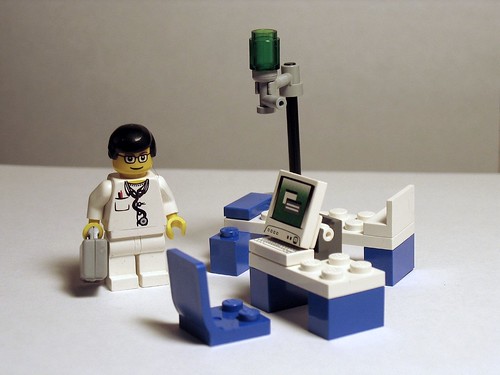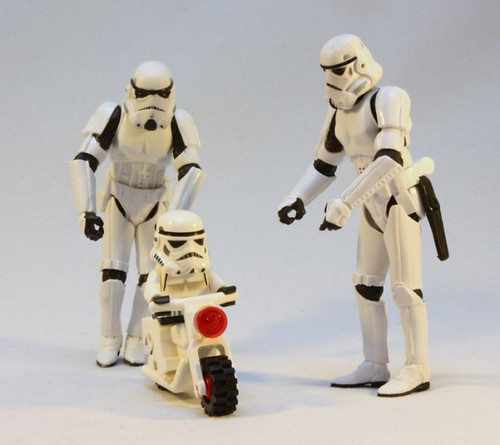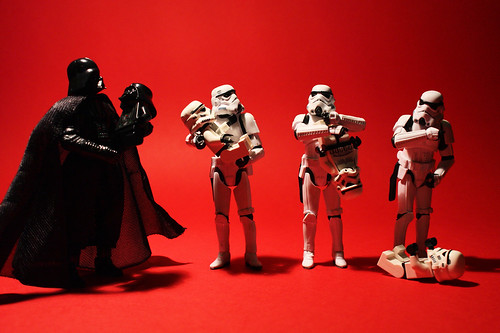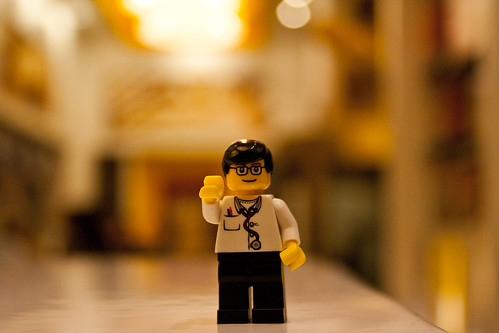What Makes an Extraordinary Physician
I wrote this essay for my Art and Science of Medicine I course, and decided to share it here since the topic is general and reflects a broad sampling of what I’ve learned in the last couple years. Names of doctors and patients and some personal details are redacted to preserve privacy.
The duty of doctors is widely recognized as a profoundly high standard: every day, encountering disease, using conversation and examination to reveal details inscrutable to most people, and applying science and compassion to restore a patient to health. To “first, do no harm” is difficult enough when a patient lies mysteriously sick and the number of possible maladies is endless; to find the right treatment to cure or relieve them is an ordeal of another magnitude. In order for doctors to perform these duties, society places a remarkable amount of trust in them, allowing them to touch and manipulate the flesh of people and hear their most intimate secrets. We need doctors because we often encounter them at our weakest, when the natural functions we expect from our bodies suddenly fail either due to accident, the environment, or defect. To restore that function is an extraordinary power and an extraordinary privilege. To perform these duties extraordinarily is even more superlative. Superlative doctors inspire everyone in the practice of medicine to reach for that standard that seems so profoundly high. To find compassion for a patient that may not summon it naturally, to make time for an extra conversation with family after an exhausting shift, to always place the patient first in spite of potential conflicts with our own interests—these are deeds that encourage other physicians to improve their own qualities in the course of the profession.
In my experience, an extraordinary physician must have at least four core characteristics. Firstly, there is the ability to listen. It would seem that every doctor does this, but few do it perfectly. Is it necessarily their fault? Usually, no; clinics and hospitals are busy places: there are phones ringing, intercoms screeching, machines beeping, emails inbound, computers with forms that need to be filled. But to shut out all of that noise and distraction, and stare a patient in the eyes and listen to and feel every word that they are saying—that is something that every patient not only deserves, but often needs in order to become healthy again.
One physician I shadowed before coming to Sinai—in fact, the first one that inspired me to consider medicine as my calling—was an exceptional listener. As soon as Dr. K entered the room, the door closed, and he would lighten the mood with a few jokes, mostly at his own expense. (They were usually the same jokes over and over, but the different patients wouldn’t have known, and so they always worked.) He was a cardiologist; his patients almost universally had chronic heart failure, and he needed to change their daily habits to save their lives. That meant understanding everything about them: when they got up, what they ate, what made them stressed, how the medicines made them feel, what they expected from their new life post-cardiac incident. Talking about this, therefore, was the crux of his role in their healthcare team. I never saw him touch a phone or a computer in the presence of the patient. They trusted him because he really listened, eyes on their face, sharing himself with them, and only taking notes after the conversation was over.
He once told me, somewhat surprisingly to my ears, that if he had to choose between all the labs and tests that he could order and the ability to talk to them he would pick the personal history every single time. I heard his patients open up to him about everything—a father whose son who just committed suicide, a man struggling with cocaine, a mother who was frightened she would outlive her daughter. It was startling and humbling that I was even allowed in the room when it happened. All of these things mattered because without them, how could a physician realistically plan out the rest of these people’s lives? Would a battery of pharmaceuticals, taken regularly or not, make a dent in a patient’s sclerotic arteries in the face of the kind of life-altering stress that these patients had? A change involving the fabric of a patient’s life, like what they ate, thought, aspired to and valued, needed to happen one step at a time, and Dr. K perfectly understood and demonstrated this respect for the complexity of human life by listening to them.
Extraordinary physicians also need to be able to teach. A doctor encounters his patient for a ridiculously small fraction of their natural lives, and yet often aspires to fundamentally change the 99% of the lifetime that he will not witness. This would be impossible unless the patient can take away something more than a few prescription slips’ worth of information, particularly when the reason they are sick is a molecular defect that exerts its effects through multiple layers of biochemistry, physiology, and pathophysiology and requires their continual effort to be mitigated. Explaining all of this to them and translating it into actionable information they can apply—what to do if X, why do I sometimes feel Y—is no simple matter.
There are many doctors that I could commend for being amazing educators, both from before I came to Sinai and within this hospital. I want to recognize an awesome allergist-immunologist, Dr. L, whom I decided to shadow after seeing his remarkable lectures for my college’s physiology class figuring that he would likely be just as funny, kind, and insightful with his patients. He was all of the above, and had a particularly grueling body of knowledge to transfer to them, as many of them had complex immunological conditions that could not possibly be described in a few succinct sentences. The pen came out often, scribbling figures on papers that he would show them, diagramming what was wrong and how it could be fixed. I saw him draw pancreatic ducts and uric acid crystals, antibodies and lymphatic systems. The phrase “it’s too complicated to explain” never came out of his mouth, no matter whether the patient was six or sixty. Somebody with unpredictable bouts of debilitating pain comes to a doctor because they want answers as well as relief, and he took that duty incredibly seriously, offering his personal cell number to every patient in case they had lingering doubts or concerns.
Sinai educators are almost too numerous to praise, although I will do my best. Firstly my small group leader Dr. A, who walks that beautiful line between tough love and caring approachability like no other teacher here, steering discussions back on topic, unafraid of giving us the no-nonsense raw deal on any topic using episodes from her personal experiences. How do you communicate the “soft skills” of being a doctor to a room full of bright-eyed medical students that have absolutely no experience and barely any practical medical knowledge? It’s not a task that I can even comprehend at this point, so major kudos to her for charging into it with such fearlessness. Dr. O, for putting a whole curriculum together on this very subject. Dr. I, who helped me educate a Spanish-speaking EHHOP patient on dietary recommendations despite my formidable level zero Spanish skills. Drs. Z and T, for always accommodating two medical students whenever my LCE patient came back for appointments, afterward offering the full debrief on what happened throughout the encounter.
One more Sinai doctor is memorable because he showed me another important quality of an extraordinary physician: humility in the face of uncertainty. Perhaps just as important in educating the patient from the endless textbooks and journals that support modern medicine is the admission that sometimes the answer is unknown. […patient history redacted…] Our preceptor for this course, Dr. G, has decades of experience with this disease and yet must admit to each and every patient diagnosed that the etiology is not clear and the treatments are supportive at best. It is a difficult topic to broach, one that requires a tricky combination of empathy and humbleness, but he does it without hesitation or diminishing the patient’s confidence in his plan of care. Nobody likes to say “I don’t know,” and therefore it is an onerous task (even though I am getting plenty of practice as a first year medical student). Being able to do it well, every day, with people that put their life in your hands, is extraordinary.
The fourth quality of an extraordinary physician is the willingness to make sacrifices for the good of your patient, and to do so gracefully under pressure. Sometimes you have to let them have your dignity, your patience, or both. On our hospital-based rounds, Dr. A had the unenviable task of introducing us to bedridden patients, some of whom made not-quite-appropriate comments about her appearance as a female doctor. The behavior, while clearly unacceptable, did not faze her in the slightest—she placed the rapport she was trying to develop between us students and the patient first, and the encounter turned out to be educational. You never know when you might need to treat a patient that riles you in every possible way, and the ability to control this is a hallmark of medical professionalism. The doctors at my clinical site, a private pediatrics office, have families that are less cooperative than others, but they receive the same attention and care regardless. I watched my preceptor, Dr. R, take a call from a family whose son was having severe psychological issues, even though they had moved out of state and hadn’t seen her in years. Their concern was genuine, and therefore so was hers. In her clinic the littlest patients often resisted most medical care, and therefore patience and specialized communication skills are vital. A triumvirate of disagreeable conditions—the screaming, hostile patient, the anxious and frazzled parents, the need to administer shots or other painful meds—never deterred her from her goal. She made it look routine, because it was.
Therefore, what makes an extraordinary physician is not just one talent, but a balance of orthogonal qualities: to listen, to educate, to be humble, and to gracefully make sacrifices. On a given day, a physician may be called upon to exercise any or all of these talents, and when they do it well, they become extraordinary. However, in order to maintain the trust that physicians are given by our society, doctors must above all be honest and worthy of that trust. That means being honest to the patient, of course, but honesty toward colleagues and toward themselves is just as critical. Medicine is not practiced in a vacuum; it requires the support of the people working in its institutions for one another, and the support of the community that it serves. On the day when the ethical dilemmas we discuss in class become real situations, we will all be tested. We will be tested when we see our colleagues fall short of their responsibilities, and we will be tested when our supervisors ask us to do things we find questionable. What is most extraordinary about medicine—besides its individual physicians—is that we are given the privilege to serve the people around us in such a valuable way with our lives, and it is this privilege that must be respected first before we even attempt to learn the talents that will make us extraordinary as individuals.




Discuss this post on HN.